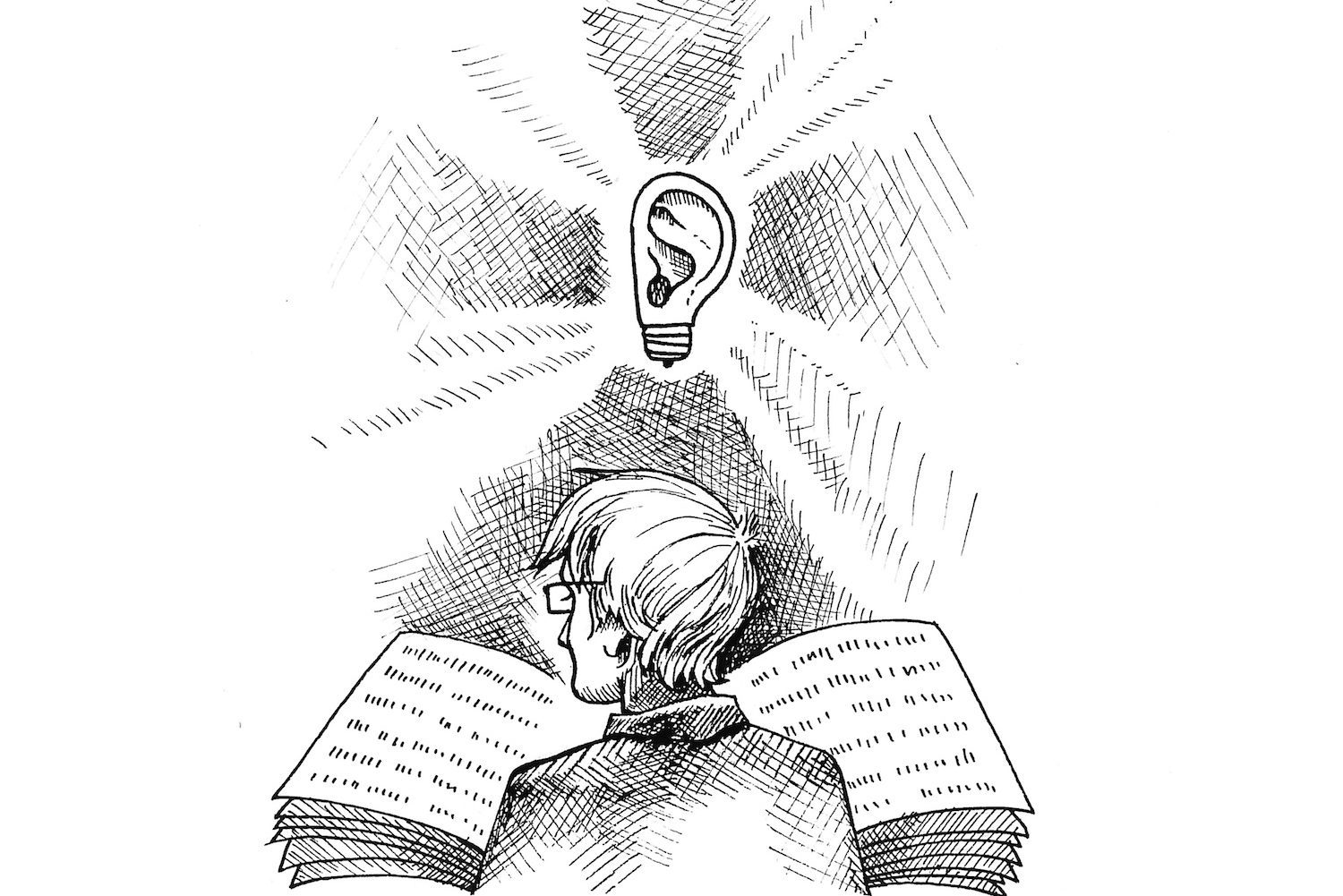Illustration by Mitchell Fong
One of the last stories I ever heard was from this guy Maseeh, a source for an article on Muslim immigrants. He spoke about moving to Hawai‘i from Iran, about not knowing a lick of English, and about how this made him unable to take part in conversations for more than a year. I couldn’t imagine the loneliness that must have caused. My sympathy morphed into empathy the next morning, in May, when I lost my hearing.
Waking up to my alarm sounding muted, my hearing muffled, is distressing. Being told by doctors three weeks later that this deafness, of which they don’t know the cause, is permanent, and will only get worse, is devastating. My first anxieties weren’t about my social life or general wellbeing, but about how I would continue my job of writing profiles—portraits painted with words. To me, a proper profile is gathered by sitting down with someone and listening. I tell subjects that I’m not interviewing them, we’re just “talking story.” Because that’s how you get to know a person best—you get them to tell their stories. I crave those stories, and I crave writing them down. Now, I can no longer hear them.
I drafted my first profile two years ago, for a media literacy class assignment at the University of Hawai‘i at Mānoa. The subject I chose was a grouchy modern European history professor who had lived through much of what he was teaching, having been raised west of the Berlin Wall in the aftermath of WWII. During our interview, he revealed that he had late-stage cancer, yet refused to quit teaching. This information wasn’t public knowledge, but he gave me permission to print his profile in the school paper. The realization that someone trusted me enough to tell their story was thrilling. I found myself daydreaming about that rush every day. I dropped my secondary education major, joined the school’s journalism program, applied for magazine internships, and sought mentors for my writing. I was all in—profile writer or bust.
Then suddenly, I was deaf. Plans for a surgery that might have given me back my hearing fell through, rubbing salt in the wound. I became a recluse for two months, passing my days watching Netflix (captions on). I felt I had lost my passion and, as a result, my self-worth. It seemed I had reached bust.
During this time, I came across a pile of artifacts from my elementary school days. Digging through it, I found composition books filled with embellished stories I’d written about my own life and doodles of book covers for fantasy epics I planned to write but never had the patience to finish. I began to realize that, at the heart of things, storytelling is my true passion—it always has been. My love for storytelling was born in my childhood, on the wooden patio of my Tennessee home after family dinners. As dusk faded and fireflies floated through the air, my sister and I bombarded our parents with questions about their pasts, asking to hear their funniest stories. I would retell these tales to my friends, usually to prove that my parents were cooler than theirs. When I was old enough to consider careers other than being a spy or Jedi, my dream jobs revolved around stories. I wanted to tell the narratives of the deceased as a historian, to write fiction as a novelist, to help others with their own storytelling as an editor.
Lately, I’ve begun to focus less on my crushed dreams, and more on my forgotten ones. Profile writing is one way of immersing myself in my passion, but it is not the only option. I may study to be a historian, or enroll in creative writing classes and try penning a novel. As long as I’m telling stories, life is good. Maybe I’ll even write my own.
This story is part of our The Good Life Issue.

